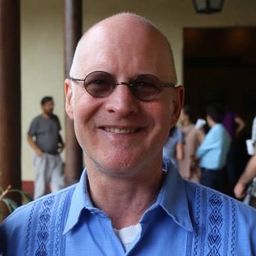11.30 Contradictions of Aesthetic and Economic Order in a World Heritage Site in Guatemala
My Session Status
The UNESCO World Heritage aesthetic of Antigua Guatemala is well entrenched in the representations of the city and the collective memories of its residents. In this aesthetic-representational field, the city’s eighteenth-century Spanish Colonial Baroque-style architecture takes centre stage, displacing the people who work and live there. Yet, despite these hegemonic aesthetics, backed by local and national laws and UNESCO conventions, the actual practice of heritage by residents, street workers, and tourists in public places is far more diverse, contradictory, and contested than the dominant heritage imagery of the city suggests.
Drawing on critical urban theories and indigenous cosmopolitics, I will explore the relationships between Antigua’s World Heritage aesthetic regimes and the slippages between the formal and informal economic practices that take place in the city’s public places. In particular, I am concerned with the ways that street workers deploy tactics, following de Certeau’s (1984) logic, to slide between formal and informal heritage spaces and formal and informal economic practices to make a living and challenge dominant, formal heritage, and economic conventions. I will argue that it is in these “gray spaces” that street workers contribute to a politics of alternative heritagization practices that help reconfigure their rights to the city through a cosmopolitics “articulating other worlds, and new practices, into their own, and finding terms of alliance that could enhance their lives.”
My ethnographic data will illustrate that, rather than through processes of negotiation with dominant stakeholders in the city’s political and formal business sectors, street workers form loose alliances among themselves, with foreign businesspersons in the tourism sector, and with international tourists to get the most out of the tactics they use to protect themselves from arrests and merchandise seizures to improve their livelihoods. These politics of alliances and tactics contribute to alternative lived heritage practices that can alternatively contradict and complement the hegemonic representational and built-space heritage of Antigua’s Spanish colonial architectural legacies.
